- and supplements may have therapeutic value
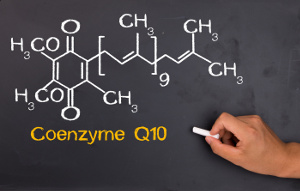 Hereditary hemochromatosis is a group of diseases that involve iron accumulation in the body. This leads to oxidative stress and tissue destruction which may affect the liver and other organs. According to a new Argentinian study, patients with hereditary hemochromatosis lack Q10 in their blood. Because Q10 is of vital importance to the cellular energy turnover and it also serves as a powerful antioxidant against oxidative stress, a Q10 deficiency will contribute to the disease. This, the researchers behind the new study explain, is why Q10 may represent a new and safe agent for treating the condition.
Hereditary hemochromatosis is a group of diseases that involve iron accumulation in the body. This leads to oxidative stress and tissue destruction which may affect the liver and other organs. According to a new Argentinian study, patients with hereditary hemochromatosis lack Q10 in their blood. Because Q10 is of vital importance to the cellular energy turnover and it also serves as a powerful antioxidant against oxidative stress, a Q10 deficiency will contribute to the disease. This, the researchers behind the new study explain, is why Q10 may represent a new and safe agent for treating the condition.
- which many people lack
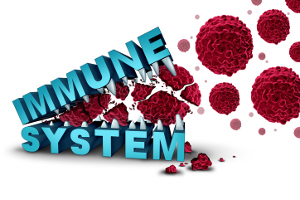 It is not the actual COVID-19 virus that can become lethal. It is the immune system’s overreaction with hyperinflammation and a storm of cytokines that destroys healthy tissue in the lungs, the cardiovascular system, and other places in the body, according to a new article that is published in The Lancet. The capacity of the immune system determines if an infection like COVID-19 is either harmless or life-threatening. For that reason, hygienic measures, masks, isolation, and delayed vaccines are not sufficient. We also need to bolster our immune system against COVID-19 and other pandemics that may occur in the future. Let’s look closer at vitamin C, vitamin D, selenium and zinc, all of which are essential for preventing a well-functioning immune system from going off its rails. What is also worth mentioning is that many people lack these nutrients, especially older people and other exposed groups.
It is not the actual COVID-19 virus that can become lethal. It is the immune system’s overreaction with hyperinflammation and a storm of cytokines that destroys healthy tissue in the lungs, the cardiovascular system, and other places in the body, according to a new article that is published in The Lancet. The capacity of the immune system determines if an infection like COVID-19 is either harmless or life-threatening. For that reason, hygienic measures, masks, isolation, and delayed vaccines are not sufficient. We also need to bolster our immune system against COVID-19 and other pandemics that may occur in the future. Let’s look closer at vitamin C, vitamin D, selenium and zinc, all of which are essential for preventing a well-functioning immune system from going off its rails. What is also worth mentioning is that many people lack these nutrients, especially older people and other exposed groups.
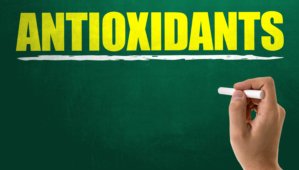 Antioxidants such as vitamin C are able to counteract chromium-6 poisoning, according to a new study that is published in Experimental Biology. Chromium-6 (hexavalent chromium) is used for many industrial purposes, and the different signs of poisoning such as cancer were described in the movie “Erin Brockovich” that is based on a true story. Now, Danish scientists even claim that the threshold level for chromium-6 is far too high and gives a false sense of security. It is vital to avoid exposure to chromium-6 and to get plenty of protective antioxidants. However, we depend on chromium-3 (trivalent chromium) for controlling our blood sugar levels.
Antioxidants such as vitamin C are able to counteract chromium-6 poisoning, according to a new study that is published in Experimental Biology. Chromium-6 (hexavalent chromium) is used for many industrial purposes, and the different signs of poisoning such as cancer were described in the movie “Erin Brockovich” that is based on a true story. Now, Danish scientists even claim that the threshold level for chromium-6 is far too high and gives a false sense of security. It is vital to avoid exposure to chromium-6 and to get plenty of protective antioxidants. However, we depend on chromium-3 (trivalent chromium) for controlling our blood sugar levels.
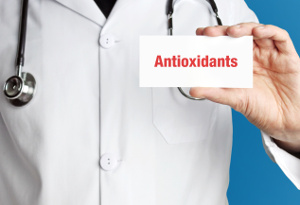 Antioxidants such as vitamins C and E are known to be inversely related to type 1 diabetes, which is an autoimmune disease. In a new Swedish study that is published in Nutrients, scientists have found that vitamin E also protects against type 1,5 diabetes, which is similar to type 1 and type 2 diabetes because it involves both autoimmune reactions reand insulinsistance. The scientists list different foods that are rich in vitamin E and also describe how vitamin E protects the pancreas against autoimmune attacks and oxidative stress.
Antioxidants such as vitamins C and E are known to be inversely related to type 1 diabetes, which is an autoimmune disease. In a new Swedish study that is published in Nutrients, scientists have found that vitamin E also protects against type 1,5 diabetes, which is similar to type 1 and type 2 diabetes because it involves both autoimmune reactions reand insulinsistance. The scientists list different foods that are rich in vitamin E and also describe how vitamin E protects the pancreas against autoimmune attacks and oxidative stress.
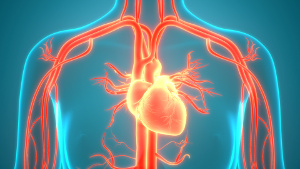 Life cannot exist without coenzyme Q10. The compound is necessary for the energy turnover in all our cells. It also functions as a powerful antioxidant that protects the heart and cardiovascular system against oxidative stress. Humans are able to synthesize Q10 but our endogenous production decreases with age. Heart failure patients also have reduced levels of Q10 which can be fatal, but decades of research have shown that Q10 supplements can improve quality of life and reduce mortality by close to 50 percent, according to a review article in Journal of Clinical Medicine. Here, the authors refer to 90 published articles. It is also important to get enough selenium, which helps Q10 function optimally.
Life cannot exist without coenzyme Q10. The compound is necessary for the energy turnover in all our cells. It also functions as a powerful antioxidant that protects the heart and cardiovascular system against oxidative stress. Humans are able to synthesize Q10 but our endogenous production decreases with age. Heart failure patients also have reduced levels of Q10 which can be fatal, but decades of research have shown that Q10 supplements can improve quality of life and reduce mortality by close to 50 percent, according to a review article in Journal of Clinical Medicine. Here, the authors refer to 90 published articles. It is also important to get enough selenium, which helps Q10 function optimally.
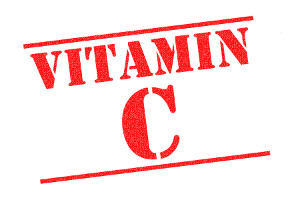 Vitamin C is important for the immune system, the nervous system, energy turnover, connective tissue, hormone production, and numerous biochemical processes. Vitamin C is also an important antioxidant that protects cells and tissues against oxidative stress and hyperinflammation that cause virus infections to become dangerous. According to a new review article that is published in Nutrients, lack of vitamin C is widespread in underdeveloped, low-income countries but also occurs in industrialized countries with higher income levels. Also, the majority of Danes fail to consume the recommended amount of fruit and vegetables that are rich in vitamin C, plus a number of factors can increase the need for the nutrient.
Vitamin C is important for the immune system, the nervous system, energy turnover, connective tissue, hormone production, and numerous biochemical processes. Vitamin C is also an important antioxidant that protects cells and tissues against oxidative stress and hyperinflammation that cause virus infections to become dangerous. According to a new review article that is published in Nutrients, lack of vitamin C is widespread in underdeveloped, low-income countries but also occurs in industrialized countries with higher income levels. Also, the majority of Danes fail to consume the recommended amount of fruit and vegetables that are rich in vitamin C, plus a number of factors can increase the need for the nutrient.
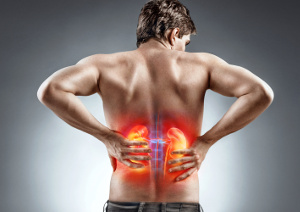 Kidney stones is a painful and quite common problem. The diet plays a major role and according to a large American population study published in Nutrients, selenium may help prevent the condition. The authors mention that selenium-containing proteins and antioxidants have preventative mechanisms and due to the widespread problems with selenium-depleted farmland, they say that selenium supplementation may be a good way to prevent and manage kidney stones and other pathological changes.
Kidney stones is a painful and quite common problem. The diet plays a major role and according to a large American population study published in Nutrients, selenium may help prevent the condition. The authors mention that selenium-containing proteins and antioxidants have preventative mechanisms and due to the widespread problems with selenium-depleted farmland, they say that selenium supplementation may be a good way to prevent and manage kidney stones and other pathological changes.
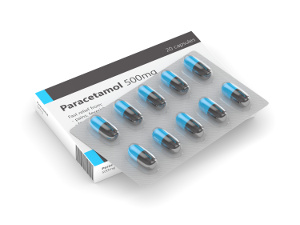 Millions of people take painkillers such as Panadol or Calpol that contain paracetamol, and an estimated one billion people or so lack selenium due to nutrient-depleted farmland. This is an unfortunate cocktail because being deficient of selenium increases the risk of using paracetamol, so even the recommended dosage burdens the liver to such an extent that it causes toxicity and increase the risk of side effects. This was demonstrated in a collaborative study carried out by Bath University in England and Southwest University in China.
Millions of people take painkillers such as Panadol or Calpol that contain paracetamol, and an estimated one billion people or so lack selenium due to nutrient-depleted farmland. This is an unfortunate cocktail because being deficient of selenium increases the risk of using paracetamol, so even the recommended dosage burdens the liver to such an extent that it causes toxicity and increase the risk of side effects. This was demonstrated in a collaborative study carried out by Bath University in England and Southwest University in China.
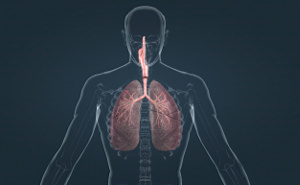 Vitamin C is of vital importance to our immune defense, and it serves as a powerful antioxidant to protect cells and tissues. Large quantities of vitamin C are able to improve lung function in patients with chronic obstructive pulmonary disease (COPD) and other chronic lung disorders. This was demonstrated in a large meta-analysis published in International Journal of Chronic Obstructive Pulmonary Disease.
Vitamin C is of vital importance to our immune defense, and it serves as a powerful antioxidant to protect cells and tissues. Large quantities of vitamin C are able to improve lung function in patients with chronic obstructive pulmonary disease (COPD) and other chronic lung disorders. This was demonstrated in a large meta-analysis published in International Journal of Chronic Obstructive Pulmonary Disease.
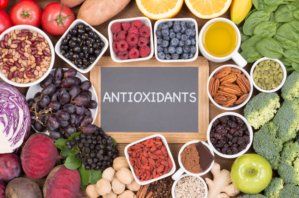 Elevated blood pressure is the main cause of stroke, cardiovascular disease and early death. For quite some time, there has been evidence that intake of fruit and vegetables affects the risk of developing elevated blood pressure. Science has not yet studied if this is due to the antioxidants in our diets, but a team of French scientists has looked closer at this. The researchers found that the total amount of antioxidants in our diet may lower by 15 percent the risk of elevated blood pressure. The potassium in fruit and vegetables also play a determining role in blood pressure management, and the same goes for Q10 – provided you take quality supplements with proper absorption.
Elevated blood pressure is the main cause of stroke, cardiovascular disease and early death. For quite some time, there has been evidence that intake of fruit and vegetables affects the risk of developing elevated blood pressure. Science has not yet studied if this is due to the antioxidants in our diets, but a team of French scientists has looked closer at this. The researchers found that the total amount of antioxidants in our diet may lower by 15 percent the risk of elevated blood pressure. The potassium in fruit and vegetables also play a determining role in blood pressure management, and the same goes for Q10 – provided you take quality supplements with proper absorption.
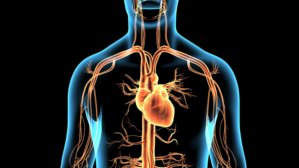 Melatonin is primarily known as a sleep hormone and a powerful antioxidant. According to a new study, melatonin may even improve the condition of rats that have heart rhythm disturbances with an increased risk of heart attack. Melatonin’s ability to improve the heart function is not related to its antioxidant function, however, and that surprised the scientists behind the study. The new study was presented at an annual meeting for the American Physiological Society (APS) in Orlando. Melatonin has several vital functions, but as we age our endogenous production decreases. Not only does this affect our quality of sleep, it also has a negative impact on the heart and the body’s cells.
Melatonin is primarily known as a sleep hormone and a powerful antioxidant. According to a new study, melatonin may even improve the condition of rats that have heart rhythm disturbances with an increased risk of heart attack. Melatonin’s ability to improve the heart function is not related to its antioxidant function, however, and that surprised the scientists behind the study. The new study was presented at an annual meeting for the American Physiological Society (APS) in Orlando. Melatonin has several vital functions, but as we age our endogenous production decreases. Not only does this affect our quality of sleep, it also has a negative impact on the heart and the body’s cells.
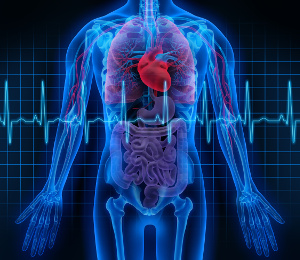 Cardiovascular diseases are widespread and one of the major causes of death. The risk is increased by factors such as ageing, diabetes, and overweight. One of the underlying causes is oxidative stress, which is an imbalance between free radicals and antioxidants. Q10, which is involved in cellular energy turnover, happens to be one of the most powerful antioxidants. According to a review article that is published in the scientific journal Antioxidants, supplementation with Q10 can reduce oxidative stress and cardiovascular mortality. It can also improve quality of life and increase the chances of survival. Generally speaking, Q10 has a huge potential for anyone with a desire to remain healthy, and it is important to choose a supplement with documented quality and bioavailability.
Cardiovascular diseases are widespread and one of the major causes of death. The risk is increased by factors such as ageing, diabetes, and overweight. One of the underlying causes is oxidative stress, which is an imbalance between free radicals and antioxidants. Q10, which is involved in cellular energy turnover, happens to be one of the most powerful antioxidants. According to a review article that is published in the scientific journal Antioxidants, supplementation with Q10 can reduce oxidative stress and cardiovascular mortality. It can also improve quality of life and increase the chances of survival. Generally speaking, Q10 has a huge potential for anyone with a desire to remain healthy, and it is important to choose a supplement with documented quality and bioavailability.
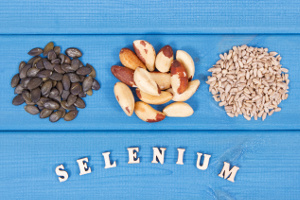 The cells in our body are constantly renewed but they can only divide a limited number of times. It all depends on the length of their telomeres, which one can compare to the protective plastic tips at the ends of shoelaces. Every time a cell divides, its telomeres are reduced in length, bringing the cell closer to its terminal phase. Now, a Chinese study has revealed that higher selenium intake is linked to increased telomere length. Put differently, a higher selenium intake contributes to protecting the cells and allowing them to replicate more times. This may likely postpone the ageing process and extend our lifespan, and there are other studies that suggest the same. It is worth making a note of the fact that selenium deficiency is widespread in Europe and throughout the world.
The cells in our body are constantly renewed but they can only divide a limited number of times. It all depends on the length of their telomeres, which one can compare to the protective plastic tips at the ends of shoelaces. Every time a cell divides, its telomeres are reduced in length, bringing the cell closer to its terminal phase. Now, a Chinese study has revealed that higher selenium intake is linked to increased telomere length. Put differently, a higher selenium intake contributes to protecting the cells and allowing them to replicate more times. This may likely postpone the ageing process and extend our lifespan, and there are other studies that suggest the same. It is worth making a note of the fact that selenium deficiency is widespread in Europe and throughout the world.
 Regular sport is good for you, whereas arduous training and high-performance sport can result in physical injuries, infections, chronic inflammation, and serious diseases due to oxidative stress. This phenomenon occurs as a result of the increased energy turnover, which produces an excess of free radicals that cause damage to cells and tissues. Oxidative stress is also associated with impaired performance, poor restitution, and faster ageing. Our only natural defense against free radicals is the presence of antioxidants, and it is especially things like vitamin C, vitamin E, selenium, zinc, Q10, omega-3 fatty acids, and turmeric that protect against oxidative damage and improve recovery time. According to a review article published in Nutrients, supplements with the right doses of different nutrients can also help boost your physical and mental performance.
Regular sport is good for you, whereas arduous training and high-performance sport can result in physical injuries, infections, chronic inflammation, and serious diseases due to oxidative stress. This phenomenon occurs as a result of the increased energy turnover, which produces an excess of free radicals that cause damage to cells and tissues. Oxidative stress is also associated with impaired performance, poor restitution, and faster ageing. Our only natural defense against free radicals is the presence of antioxidants, and it is especially things like vitamin C, vitamin E, selenium, zinc, Q10, omega-3 fatty acids, and turmeric that protect against oxidative damage and improve recovery time. According to a review article published in Nutrients, supplements with the right doses of different nutrients can also help boost your physical and mental performance.
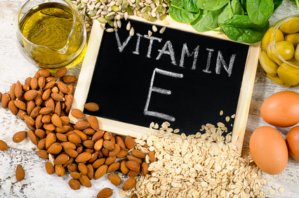 Vitamin E is said to be a powerful antioxidant that counteracts wrinkles, reduces the degeneration of joints in rheumatoid arthritis, and even protects against atherosclerosis and cancer. However, studies have shown contradictory results, and the positive effects are most probably a result of luck. Now, a team of international scientists has demonstrated that the effect of vitamin E is not related to the vitamin itself but rather to the effect of a vitamin E-dependent metabolite that is produced in the liver. The researchers see a huge potential in vitamin E therapy that is tailored to fit each person’s individual utilization and metabolism of the nutrient. Vitamin E supplements should contain natural forms of the vitamin to provide the best effect.
Vitamin E is said to be a powerful antioxidant that counteracts wrinkles, reduces the degeneration of joints in rheumatoid arthritis, and even protects against atherosclerosis and cancer. However, studies have shown contradictory results, and the positive effects are most probably a result of luck. Now, a team of international scientists has demonstrated that the effect of vitamin E is not related to the vitamin itself but rather to the effect of a vitamin E-dependent metabolite that is produced in the liver. The researchers see a huge potential in vitamin E therapy that is tailored to fit each person’s individual utilization and metabolism of the nutrient. Vitamin E supplements should contain natural forms of the vitamin to provide the best effect.
 Air pollution is a serious health threat that affects the entire world. Previous studies show that it increases the risk of cardiovascular disease, among other things. We need new strategies for protection, and a recent Chinese study conveniently reveals that supplementation with vitamin C can protect the cardiovascular system against oxidative stress and other harmful impacts from air pollution. What we need to find out is how much vitamin C it takes to obtain a therapeutic effect.
Air pollution is a serious health threat that affects the entire world. Previous studies show that it increases the risk of cardiovascular disease, among other things. We need new strategies for protection, and a recent Chinese study conveniently reveals that supplementation with vitamin C can protect the cardiovascular system against oxidative stress and other harmful impacts from air pollution. What we need to find out is how much vitamin C it takes to obtain a therapeutic effect.
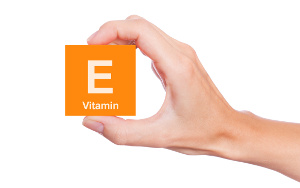 According to an article that is published in StatPearls, vitamin E is a powerful antioxidant that protects against atherosclerosis, cardiovascular disease, and blood clots. Vitamin E is also important for fertility, cell functions, and immune defense. A low-fat diet may result in a vitamin E deficiency. You should also beware that diseases characterized by impaired lipid absorption may increase you need for vitamin E.
According to an article that is published in StatPearls, vitamin E is a powerful antioxidant that protects against atherosclerosis, cardiovascular disease, and blood clots. Vitamin E is also important for fertility, cell functions, and immune defense. A low-fat diet may result in a vitamin E deficiency. You should also beware that diseases characterized by impaired lipid absorption may increase you need for vitamin E.
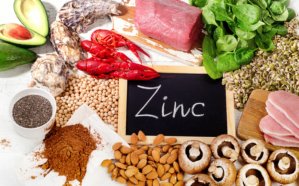 Our ability to absorb zinc is reduced with age, and many older people lack zinc, even though there is plenty of zinc in the diet they eat. The trace element is involved in over 1,000 enzyme processes and is also an important antioxidant that protects our cells. Even minor zinc deficiencies can speed up ageing processes and contribute to skin and hair problems, infections such as bladder infections, chronic inflammation, elevated blood pressure, cancer, and other diseases. People with unhealthy diets, vegetarians, vegans, and older people are at particularly vulnerable. Certain types of medicine that many seniors take can also increase the risk of a zinc deficiency.
Our ability to absorb zinc is reduced with age, and many older people lack zinc, even though there is plenty of zinc in the diet they eat. The trace element is involved in over 1,000 enzyme processes and is also an important antioxidant that protects our cells. Even minor zinc deficiencies can speed up ageing processes and contribute to skin and hair problems, infections such as bladder infections, chronic inflammation, elevated blood pressure, cancer, and other diseases. People with unhealthy diets, vegetarians, vegans, and older people are at particularly vulnerable. Certain types of medicine that many seniors take can also increase the risk of a zinc deficiency.
 Hereditary hemochromatosis is a group of diseases that involve iron accumulation in the body. This leads to oxidative stress and tissue destruction which may affect the liver and other organs. According to a new Argentinian study, patients with hereditary hemochromatosis lack Q10 in their blood. Because Q10 is of vital importance to the cellular energy turnover and it also serves as a powerful antioxidant against oxidative stress, a Q10 deficiency will contribute to the disease. This, the researchers behind the new study explain, is why Q10 may represent a new and safe agent for treating the condition.
Hereditary hemochromatosis is a group of diseases that involve iron accumulation in the body. This leads to oxidative stress and tissue destruction which may affect the liver and other organs. According to a new Argentinian study, patients with hereditary hemochromatosis lack Q10 in their blood. Because Q10 is of vital importance to the cellular energy turnover and it also serves as a powerful antioxidant against oxidative stress, a Q10 deficiency will contribute to the disease. This, the researchers behind the new study explain, is why Q10 may represent a new and safe agent for treating the condition.







 Magnesium is important for numerous physiological functions. In a new review article published in Nutrients, researchers have looked at the relation between the body’s magnesium levels and a variety of different ageing markers. Also, they hypothesize that optimal intake of magnesium throughout life is an easy and inexpensive way to obtain healthy ageing.
Magnesium is important for numerous physiological functions. In a new review article published in Nutrients, researchers have looked at the relation between the body’s magnesium levels and a variety of different ageing markers. Also, they hypothesize that optimal intake of magnesium throughout life is an easy and inexpensive way to obtain healthy ageing.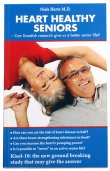

 It is not the actual COVID-19 virus that can become lethal. It is the immune system’s overreaction with hyperinflammation and a storm of cytokines that destroys healthy tissue in the lungs, the cardiovascular system, and other places in the body, according to a new article that is published in The Lancet. The capacity of the immune system determines if an infection like COVID-19 is either harmless or life-threatening. For that reason, hygienic measures, masks, isolation, and delayed vaccines are not sufficient. We also need to bolster our immune system against COVID-19 and other pandemics that may occur in the future. Let’s look closer at vitamin C, vitamin D, selenium and zinc, all of which are essential for preventing a well-functioning immune system from going off its rails. What is also worth mentioning is that many people lack these nutrients, especially older people and other exposed groups.
It is not the actual COVID-19 virus that can become lethal. It is the immune system’s overreaction with hyperinflammation and a storm of cytokines that destroys healthy tissue in the lungs, the cardiovascular system, and other places in the body, according to a new article that is published in The Lancet. The capacity of the immune system determines if an infection like COVID-19 is either harmless or life-threatening. For that reason, hygienic measures, masks, isolation, and delayed vaccines are not sufficient. We also need to bolster our immune system against COVID-19 and other pandemics that may occur in the future. Let’s look closer at vitamin C, vitamin D, selenium and zinc, all of which are essential for preventing a well-functioning immune system from going off its rails. What is also worth mentioning is that many people lack these nutrients, especially older people and other exposed groups. Antioxidants such as vitamin C are able to counteract chromium-6 poisoning, according to a new study that is published in Experimental Biology. Chromium-6 (hexavalent chromium) is used for many industrial purposes, and the different signs of poisoning such as cancer were described in the movie “Erin Brockovich” that is based on a true story. Now, Danish scientists even claim that the threshold level for chromium-6 is far too high and gives a false sense of security. It is vital to avoid exposure to chromium-6 and to get plenty of protective antioxidants. However, we depend on chromium-3 (trivalent chromium) for controlling our blood sugar levels.
Antioxidants such as vitamin C are able to counteract chromium-6 poisoning, according to a new study that is published in Experimental Biology. Chromium-6 (hexavalent chromium) is used for many industrial purposes, and the different signs of poisoning such as cancer were described in the movie “Erin Brockovich” that is based on a true story. Now, Danish scientists even claim that the threshold level for chromium-6 is far too high and gives a false sense of security. It is vital to avoid exposure to chromium-6 and to get plenty of protective antioxidants. However, we depend on chromium-3 (trivalent chromium) for controlling our blood sugar levels. Antioxidants such as vitamins C and E are known to be inversely related to type 1 diabetes, which is an autoimmune disease. In a new Swedish study that is published in Nutrients, scientists have found that vitamin E also protects against type 1,5 diabetes, which is similar to type 1 and type 2 diabetes because it involves both autoimmune reactions re
Antioxidants such as vitamins C and E are known to be inversely related to type 1 diabetes, which is an autoimmune disease. In a new Swedish study that is published in Nutrients, scientists have found that vitamin E also protects against type 1,5 diabetes, which is similar to type 1 and type 2 diabetes because it involves both autoimmune reactions re Life cannot exist without coenzyme Q10. The compound is necessary for the energy turnover in all our cells. It also functions as a powerful antioxidant that protects the heart and cardiovascular system against oxidative stress. Humans are able to synthesize Q10 but our endogenous production decreases with age. Heart failure patients also have reduced levels of Q10 which can be fatal, but decades of research have shown that Q10 supplements can improve quality of life and reduce mortality by close to 50 percent, according to a review article in Journal of Clinical Medicine. Here, the authors refer to 90 published articles. It is also important to get enough selenium, which helps Q10 function optimally.
Life cannot exist without coenzyme Q10. The compound is necessary for the energy turnover in all our cells. It also functions as a powerful antioxidant that protects the heart and cardiovascular system against oxidative stress. Humans are able to synthesize Q10 but our endogenous production decreases with age. Heart failure patients also have reduced levels of Q10 which can be fatal, but decades of research have shown that Q10 supplements can improve quality of life and reduce mortality by close to 50 percent, according to a review article in Journal of Clinical Medicine. Here, the authors refer to 90 published articles. It is also important to get enough selenium, which helps Q10 function optimally. Vitamin C is important for the immune system, the nervous system, energy turnover, connective tissue, hormone production, and numerous biochemical processes. Vitamin C is also an important antioxidant that protects cells and tissues against oxidative stress and hyperinflammation that cause virus infections to become dangerous. According to a new review article that is published in Nutrients, lack of vitamin C is widespread in underdeveloped, low-income countries but also occurs in industrialized countries with higher income levels. Also, the majority of Danes fail to consume the recommended amount of fruit and vegetables that are rich in vitamin C, plus a number of factors can increase the need for the nutrient.
Vitamin C is important for the immune system, the nervous system, energy turnover, connective tissue, hormone production, and numerous biochemical processes. Vitamin C is also an important antioxidant that protects cells and tissues against oxidative stress and hyperinflammation that cause virus infections to become dangerous. According to a new review article that is published in Nutrients, lack of vitamin C is widespread in underdeveloped, low-income countries but also occurs in industrialized countries with higher income levels. Also, the majority of Danes fail to consume the recommended amount of fruit and vegetables that are rich in vitamin C, plus a number of factors can increase the need for the nutrient. Kidney stones is a painful and quite common problem. The diet plays a major role and according to a large American population study published in Nutrients, selenium may help prevent the condition. The authors mention that selenium-containing proteins and antioxidants have preventative mechanisms and due to the widespread problems with selenium-depleted farmland, they say that selenium supplementation may be a good way to prevent and manage kidney stones and other pathological changes.
Kidney stones is a painful and quite common problem. The diet plays a major role and according to a large American population study published in Nutrients, selenium may help prevent the condition. The authors mention that selenium-containing proteins and antioxidants have preventative mechanisms and due to the widespread problems with selenium-depleted farmland, they say that selenium supplementation may be a good way to prevent and manage kidney stones and other pathological changes. Millions of people take painkillers such as Panadol or Calpol that contain paracetamol, and an estimated one billion people or so lack selenium due to nutrient-depleted farmland. This is an unfortunate cocktail because being deficient of selenium increases the risk of using paracetamol, so even the recommended dosage burdens the liver to such an extent that it causes toxicity and increase the risk of side effects. This was demonstrated in a collaborative study carried out by Bath University in England and Southwest University in China.
Millions of people take painkillers such as Panadol or Calpol that contain paracetamol, and an estimated one billion people or so lack selenium due to nutrient-depleted farmland. This is an unfortunate cocktail because being deficient of selenium increases the risk of using paracetamol, so even the recommended dosage burdens the liver to such an extent that it causes toxicity and increase the risk of side effects. This was demonstrated in a collaborative study carried out by Bath University in England and Southwest University in China. Vitamin C is of vital importance to our immune defense, and it serves as a powerful antioxidant to protect cells and tissues. Large quantities of vitamin C are able to improve lung function in patients with chronic obstructive pulmonary disease (COPD) and other chronic lung disorders. This was demonstrated in a large meta-analysis published in International Journal of Chronic Obstructive Pulmonary Disease.
Vitamin C is of vital importance to our immune defense, and it serves as a powerful antioxidant to protect cells and tissues. Large quantities of vitamin C are able to improve lung function in patients with chronic obstructive pulmonary disease (COPD) and other chronic lung disorders. This was demonstrated in a large meta-analysis published in International Journal of Chronic Obstructive Pulmonary Disease. Elevated blood pressure is the main cause of stroke, cardiovascular disease and early death. For quite some time, there has been evidence that intake of fruit and vegetables affects the risk of developing elevated blood pressure. Science has not yet studied if this is due to the antioxidants in our diets, but a team of French scientists has looked closer at this. The researchers found that the total amount of antioxidants in our diet may lower by 15 percent the risk of elevated blood pressure. The potassium in fruit and vegetables also play a determining role in blood pressure management, and the same goes for Q10 – provided you take quality supplements with proper absorption.
Elevated blood pressure is the main cause of stroke, cardiovascular disease and early death. For quite some time, there has been evidence that intake of fruit and vegetables affects the risk of developing elevated blood pressure. Science has not yet studied if this is due to the antioxidants in our diets, but a team of French scientists has looked closer at this. The researchers found that the total amount of antioxidants in our diet may lower by 15 percent the risk of elevated blood pressure. The potassium in fruit and vegetables also play a determining role in blood pressure management, and the same goes for Q10 – provided you take quality supplements with proper absorption. Melatonin is primarily known as a sleep hormone and a powerful antioxidant. According to a new study, melatonin may even improve the condition of rats that have heart rhythm disturbances with an increased risk of heart attack. Melatonin’s ability to improve the heart function is not related to its antioxidant function, however, and that surprised the scientists behind the study. The new study was presented at an annual meeting for the American Physiological Society (APS) in Orlando. Melatonin has several vital functions, but as we age our endogenous production decreases. Not only does this affect our quality of sleep, it also has a negative impact on the heart and the body’s cells.
Melatonin is primarily known as a sleep hormone and a powerful antioxidant. According to a new study, melatonin may even improve the condition of rats that have heart rhythm disturbances with an increased risk of heart attack. Melatonin’s ability to improve the heart function is not related to its antioxidant function, however, and that surprised the scientists behind the study. The new study was presented at an annual meeting for the American Physiological Society (APS) in Orlando. Melatonin has several vital functions, but as we age our endogenous production decreases. Not only does this affect our quality of sleep, it also has a negative impact on the heart and the body’s cells. Cardiovascular diseases are widespread and one of the major causes of death. The risk is increased by factors such as ageing, diabetes, and overweight. One of the underlying causes is oxidative stress, which is an imbalance between free radicals and antioxidants. Q10, which is involved in cellular energy turnover, happens to be one of the most powerful antioxidants. According to a review article that is published in the scientific journal Antioxidants, supplementation with Q10 can reduce oxidative stress and cardiovascular mortality. It can also improve quality of life and increase the chances of survival. Generally speaking, Q10 has a huge potential for anyone with a desire to remain healthy, and it is important to choose a supplement with documented quality and bioavailability.
Cardiovascular diseases are widespread and one of the major causes of death. The risk is increased by factors such as ageing, diabetes, and overweight. One of the underlying causes is oxidative stress, which is an imbalance between free radicals and antioxidants. Q10, which is involved in cellular energy turnover, happens to be one of the most powerful antioxidants. According to a review article that is published in the scientific journal Antioxidants, supplementation with Q10 can reduce oxidative stress and cardiovascular mortality. It can also improve quality of life and increase the chances of survival. Generally speaking, Q10 has a huge potential for anyone with a desire to remain healthy, and it is important to choose a supplement with documented quality and bioavailability. The cells in our body are constantly renewed but they can only divide a limited number of times. It all depends on the length of their telomeres, which one can compare to the protective plastic tips at the ends of shoelaces. Every time a cell divides, its telomeres are reduced in length, bringing the cell closer to its terminal phase. Now, a Chinese study has revealed that higher selenium intake is linked to increased telomere length. Put differently, a higher selenium intake contributes to protecting the cells and allowing them to replicate more times. This may likely postpone the ageing process and extend our lifespan, and there are other studies that suggest the same. It is worth making a note of the fact that selenium deficiency is widespread in Europe and throughout the world.
The cells in our body are constantly renewed but they can only divide a limited number of times. It all depends on the length of their telomeres, which one can compare to the protective plastic tips at the ends of shoelaces. Every time a cell divides, its telomeres are reduced in length, bringing the cell closer to its terminal phase. Now, a Chinese study has revealed that higher selenium intake is linked to increased telomere length. Put differently, a higher selenium intake contributes to protecting the cells and allowing them to replicate more times. This may likely postpone the ageing process and extend our lifespan, and there are other studies that suggest the same. It is worth making a note of the fact that selenium deficiency is widespread in Europe and throughout the world. Regular sport is good for you, whereas arduous training and high-performance sport can result in physical injuries, infections, chronic inflammation, and serious diseases due to oxidative stress. This phenomenon occurs as a result of the increased energy turnover, which produces an excess of free radicals that cause damage to cells and tissues. Oxidative stress is also associated with impaired performance, poor restitution, and faster ageing. Our only natural defense against free radicals is the presence of antioxidants, and it is especially things like vitamin C, vitamin E, selenium, zinc, Q10, omega-3 fatty acids, and turmeric that protect against oxidative damage and improve recovery time. According to a review article published in Nutrients, supplements with the right doses of different nutrients can also help boost your physical and mental performance.
Regular sport is good for you, whereas arduous training and high-performance sport can result in physical injuries, infections, chronic inflammation, and serious diseases due to oxidative stress. This phenomenon occurs as a result of the increased energy turnover, which produces an excess of free radicals that cause damage to cells and tissues. Oxidative stress is also associated with impaired performance, poor restitution, and faster ageing. Our only natural defense against free radicals is the presence of antioxidants, and it is especially things like vitamin C, vitamin E, selenium, zinc, Q10, omega-3 fatty acids, and turmeric that protect against oxidative damage and improve recovery time. According to a review article published in Nutrients, supplements with the right doses of different nutrients can also help boost your physical and mental performance.
 Air pollution is a serious health threat that affects the entire world. Previous studies show that it increases the risk of cardiovascular disease, among other things. We need new strategies for protection, and a recent Chinese study conveniently reveals that supplementation with vitamin C can protect the cardiovascular system against oxidative stress and other harmful impacts from air pollution. What we need to find out is how much vitamin C it takes to obtain a therapeutic effect.
Air pollution is a serious health threat that affects the entire world. Previous studies show that it increases the risk of cardiovascular disease, among other things. We need new strategies for protection, and a recent Chinese study conveniently reveals that supplementation with vitamin C can protect the cardiovascular system against oxidative stress and other harmful impacts from air pollution. What we need to find out is how much vitamin C it takes to obtain a therapeutic effect. According to an article that is published in StatPearls, vitamin E is a powerful antioxidant that protects against atherosclerosis, cardiovascular disease, and blood clots. Vitamin E is also important for fertility, cell functions, and immune defense. A low-fat diet may result in a vitamin E deficiency. You should also beware that diseases characterized by impaired lipid absorption may increase you need for vitamin E.
According to an article that is published in StatPearls, vitamin E is a powerful antioxidant that protects against atherosclerosis, cardiovascular disease, and blood clots. Vitamin E is also important for fertility, cell functions, and immune defense. A low-fat diet may result in a vitamin E deficiency. You should also beware that diseases characterized by impaired lipid absorption may increase you need for vitamin E. Our ability to absorb zinc is reduced with age, and many older people lack zinc, even though there is plenty of zinc in the diet they eat. The trace element is involved in over 1,000 enzyme processes and is also an important antioxidant that protects our cells. Even minor zinc deficiencies can speed up ageing processes and contribute to skin and hair problems, infections such as bladder infections, chronic inflammation, elevated blood pressure, cancer, and other diseases. People with unhealthy diets, vegetarians, vegans, and older people are at particularly vulnerable. Certain types of medicine that many seniors take can also increase the risk of a zinc deficiency.
Our ability to absorb zinc is reduced with age, and many older people lack zinc, even though there is plenty of zinc in the diet they eat. The trace element is involved in over 1,000 enzyme processes and is also an important antioxidant that protects our cells. Even minor zinc deficiencies can speed up ageing processes and contribute to skin and hair problems, infections such as bladder infections, chronic inflammation, elevated blood pressure, cancer, and other diseases. People with unhealthy diets, vegetarians, vegans, and older people are at particularly vulnerable. Certain types of medicine that many seniors take can also increase the risk of a zinc deficiency. "After about one week of taking the Q10 supplement I could feel a huge difference," says 23-year old Alan Piccini, who has been suffering from extreme fatigue and muscle aches ever since he was a child.
"After about one week of taking the Q10 supplement I could feel a huge difference," says 23-year old Alan Piccini, who has been suffering from extreme fatigue and muscle aches ever since he was a child. “Taking capsules with co-enzyme Q10 has freed me of the severe side effects of my cholesterol lowering medicine,” Mrs Franken explains.
“Taking capsules with co-enzyme Q10 has freed me of the severe side effects of my cholesterol lowering medicine,” Mrs Franken explains.